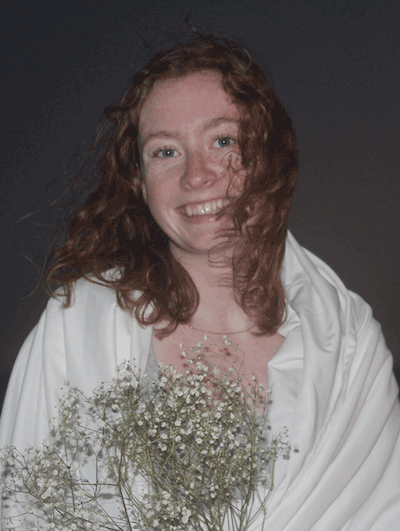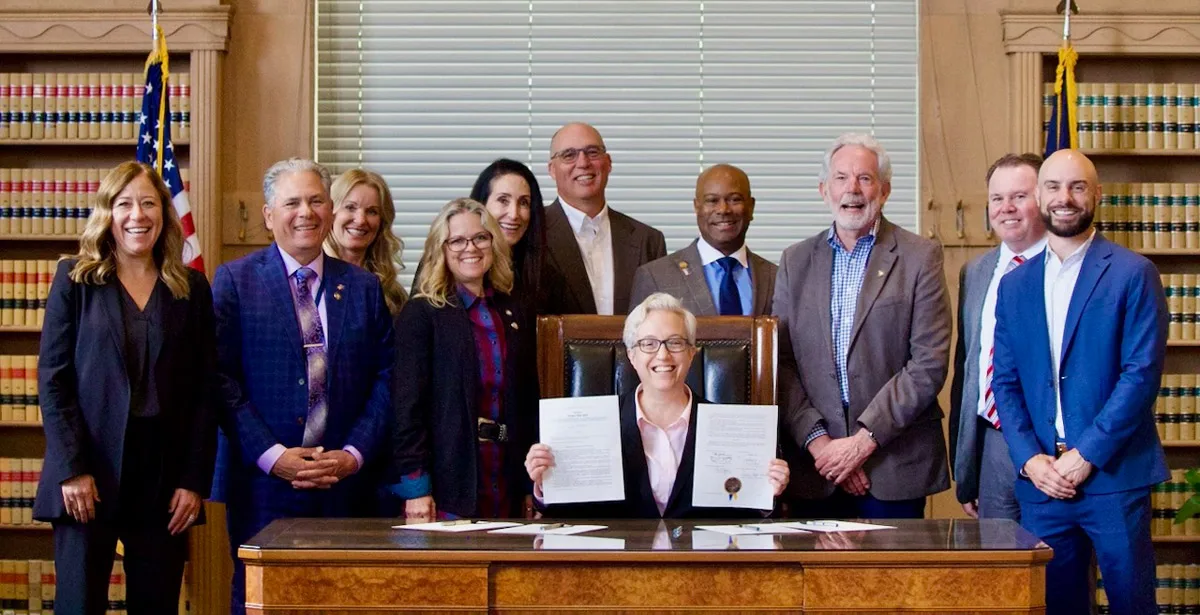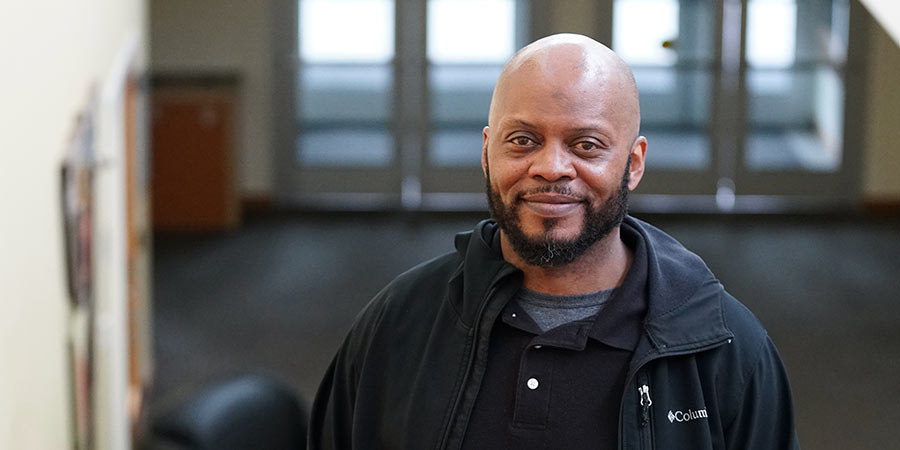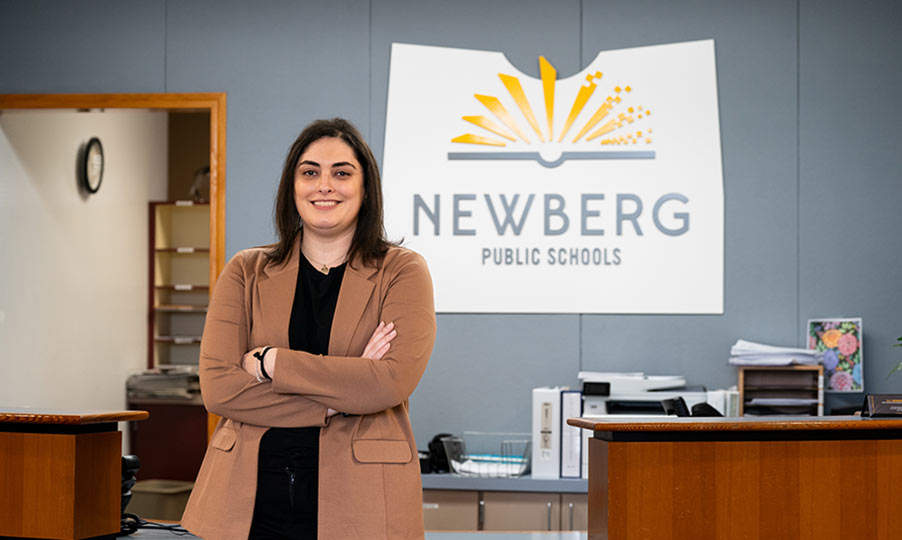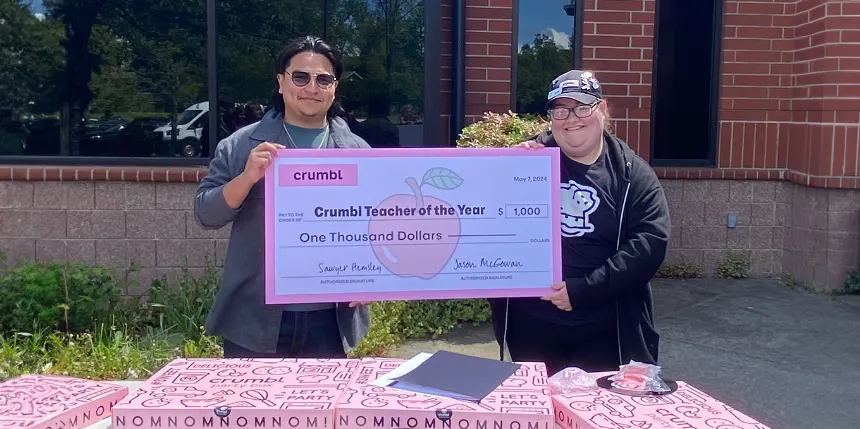
Pushing the Boundaries of Education
by Emmy King
Joshua Varon is continually creating diverse learning opportunities for his students at Leslie Middle School
When Joshua Varon first started college, he had no idea what he wanted to do with the rest of his life. In fact, he didn’t even like school.
Now he’s been honored as Oregon's Teacher of the Year by Crumbl, and he’s determined to empower and encourage his students – even if they struggle to believe in themselves and their ability to succeed.
“My goal is to let students see their own potential,” says Varon, who graduated from George Fox’s Master of Arts in Teaching (MAT) program in 2021. “A number of students come in with this idea that maybe they’re not smart enough, and it shows. I want them to understand that they can do it, and that in fact everyone can do it.”
The Path to a Teaching Career
Varon knows firsthand the kind of impact a truly invested teacher can have on a student’s life. He might not have pursued becoming an educator if one of his own teachers hadn’t believed in him.
“Ms. DeWilde was one of my old high school English teachers,” Varon says. “She was awesome, and she was always checking in on me. I told her how I was trying to look into majors that I thought would fit me, and she suggested that I try out teaching. I was like, ‘Oh, why not?’ I started diving deeper into my English classes, and I really enjoyed it.”
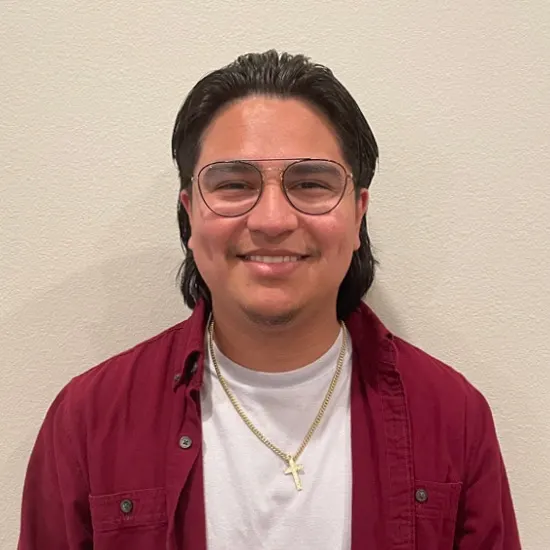
Varon went on to graduate from California State University, Dominguez Hills with a bachelor’s degree in English. After that, he worked at Obsidian Middle School in Redmond, Oregon, for a few months.
One of Varon’s colleagues at Obsidian recommended George Fox’s MAT program. Varon ultimately applied and was accepted, and while he was pursuing his master’s degree, he became involved with Leslie Middle School in Salem, Oregon, where he now works full time as a sixth-grade English teacher.
Varon loves the culture at Leslie Middle School, and he is especially appreciative of his relationships with colleagues. Leslie’s English department is tight-knit, and Varon is always talking with fellow teachers about lesson plans, teaching methods and strategies. They are all part of one team, working to provide the best education they can for their students.
“There’s always at least four or five of us in someone’s classroom at the end of the day,” Varon says. “We talk with each other about things that are happening, what we need to teach next, and strengths and weaknesses in the classroom. Being able to bounce ideas off of my coworkers has probably been my saving grace.”
Varon originally planned on teaching high school students, but he discovered that he loves teaching at the middle-school level. He enjoys challenging his students and giving them responsibility to actively engage in their education.
“If I can create a positive atmosphere for them early on, then by the time they’re in eighth grade that love of learning can still persist,” Varon says.
Meeting the Needs of Every Student
Varon is currently involved in Leslie’s Advancement Via Individual Determination (AVID) program, which helps close the achievement gap and prepare students for college. The AVID program allows teachers to advocate for underserved populations – and along the way, students learn how to advocate for themselves.
Varon teaches seventh-grade AVID students, and recently they’ve been reading through Shakespeare’s Macbeth. Many of his students are second-language or multi-language learners, and they manage Shakespeare’s work just fine. He loves seeing their faces light up as they follow the story and decipher what the text is saying.
“My favorite part is seeing the ‘aha’ moments in students,” Varon says. “The ‘oh!’ and 'I get it now!’ are my favorite words to hear.
One of the most important things Varon has learned since becoming a teacher is that all students are unique and have different needs. In response, he’s constantly evolving his teaching practices and trying new methods to better serve them.
“Evolving teaching practices is important because society is always changing and students themselves are always changing – there is no one size fits all,” Varon says. “Leaning into new teaching methods is key.”
That’s why Varon is always looking to provide new and different opportunities for students to engage with the material. His students include auditory, verbal, visual, collaborative, multi-language and special-needs learners, and Varon is determined to meet these students where they’re at. He reads aloud to them, assigns collaborative chapter reviews, and offers several different forms of summative assessments, including storyboarding (visual), powerpoints (technical), and summary work (writing). He is truly doing everything he can to make learning accessible for everyone in his classroom.
“All students need something that’s going to work for them,” Varon says. “It’s important to be able to adapt different practices, whether they be new or old, because you’re going to need a variety of different opportunities for students to shine in.”
Thinking Outside the Box
This past year, Varon had a student with unique needs who was struggling to engage and participate in class. When Varon noticed the student was having trouble, he approached him and engaged him in conversation.
“One day I asked him, ‘What is something that you would get into? What do you like?’’’ Varon recalls.
The student replied by explaining his passion for the art of tagging, a form of graffiti. Instead of being scared off by the response, Varon leaned into it. He encouraged the student to create a piece of tagging for him, and afterwards challenged him to articulate what exactly he liked about tagging.
Varon discovered that tagging was a form of self-expression for this student, and eventually he got him to write about how tagging helped him express himself. It was a big moment for both of them. Varon had worked to meet this student where he was at, and it paid off.
That experience showed Varon just what is possible when teachers are willing to think outside the box and work with students who don’t thrive in traditional learning environments. He wishes more teachers were willing to meet students where they’re at instead of forcing them into a mold.
“If we had a different set of eyes for teachers to look through, or a different lens with less judgment, I think we could do a lot more than we think we're capable of,” Varon says.
